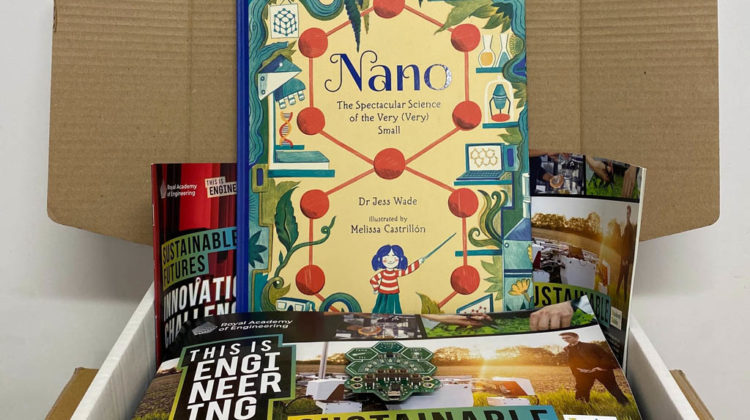
Imperial College London’s Department of Materials and the Royal Academy of Engineering have sent 500 copies of Nano: The Spectacular Science of the Very (Very) Small, a picture book about nanotechnology, to primary schools in the UK.
Written by Dr Jessica Wade, a research fellow in Imperial College’s Department of Materials, the non-fiction picture book aims to introduce children to the world of nanotechnology and materials science.
The Department of Materials organised for 500 copies of the book to be distributed to disadvantaged primary schools across the UK. The books were delivered through the Royal Academy of Engineering’s Connecting STEM Teachers programme. This free annual programme supports teachers and school coordinators by creating 150,000 STEM experiences for pupils in about 900 schools every year.
‘We are thrilled to be able to send the Nano book to schools across the country that are part of our Connecting STEM Teachers programme along with our recently launched resource This is Engineering: Sustainable Futures,’ said Yasmine Fahmy, the STEM resource writer/developer at the Royal Academy of Engineering. ‘The Connecting STEM Teachers programme is an entirely free programme where the focus is to engage with schools in areas in which the social and economic status is low, to increase the appeal of engineering careers among under-represented young people and to share contextualised learning resources with teachers across both primary and secondary schools, and all STEM subjects to support them in delivering a STEM curriculum.’
Materials science isn’t explicitly taught in primary or secondary schools so raising awareness of the discipline to the younger generation is a key priority. Wade collaborated with award-winning artist Melissa Castrillón to design the engaging and colourful illustrations for the picture book.
‘Picture books are an incredible way to introduce young people (and their parents, carers or teachers) to how exciting science can be,’ Wade said. ‘I don’t think there are enough books about materials science or chemistry for children, which seems silly, as these fields are fascinating, rapidly evolving and will help solve most of the world’s challenges. With Nano, we didn’t just want to write another book of “amazing science facts” – we wanted to show that science is a journey… and one where we need lots of different people to get as many great ideas as possible.’


